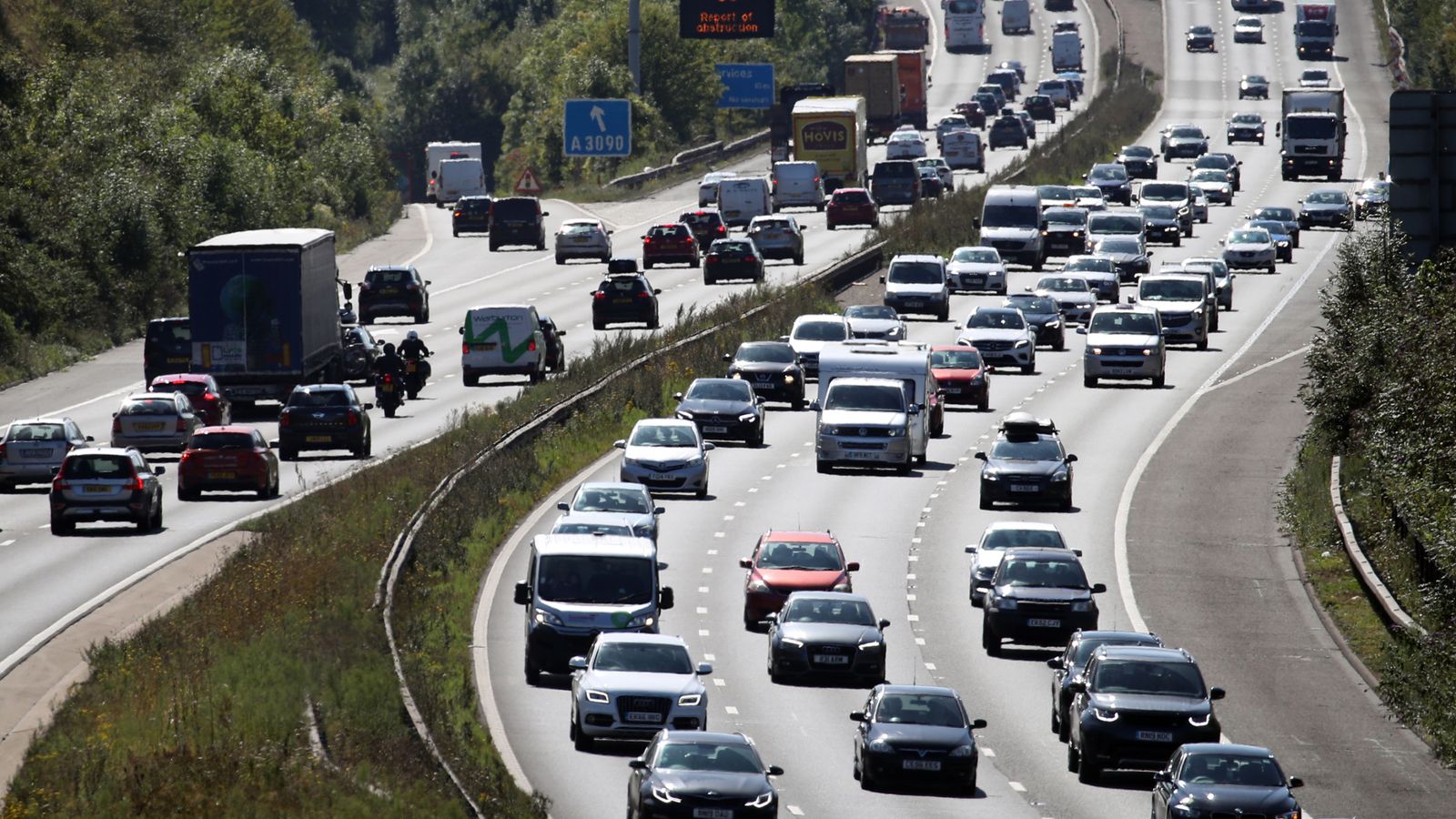The building of new smart motorways is being cancelled following concerns over safety and costs.
Fourteen planned smart motorways – including 11 that are already paused and three earmarked for construction – will be removed from government road-building plans, Downing Street has confirmed.
Existing stretches will remain but be subjected to a safety refit so there are more emergency stopping places.
Around 10% of England’s motorway network is made up of smart motorways. They involve various methods to manage the flow of traffic, including converting the hard shoulder into a live lane.
There have been longstanding fears following fatal accidents involving vehicles forced to stop in live lines, without a hard shoulder, only to be hit from behind.
Smart motorways were introduced in England in 2014 to ease congestion – there are 375 miles of smart motorway, including 235 miles with no hard shoulder.
The road to scrapping smart motorways
Plans for up to hundreds of miles of smart motorway were first announced in 2019, with the government aiming to roll out 400 miles across England by 2025.
But two years later, the proposals had been shelved.
At the time, ministers said the policy was “paused” until five years of safety data for schemes introduced before 2020 had been collected. But in his Tory leadership campaign last summer, Rishi Sunak vowed to ban them entirely.
Campaigners have long called for them to be scrapped.
Jason Mercer died in 2019 while driving to work. He had a shunt with a van on a stretch of the M1 near Sheffield which had been converted to a smart motorway.
After both vehicles stopped, they were hit by a lorry. Claire Mercer says her husband would still be alive had there been a hard shoulder.
Ms Mercer founded Smart Motorways Kill and has been campaigning for the abolishment of the motorways entirely.






















